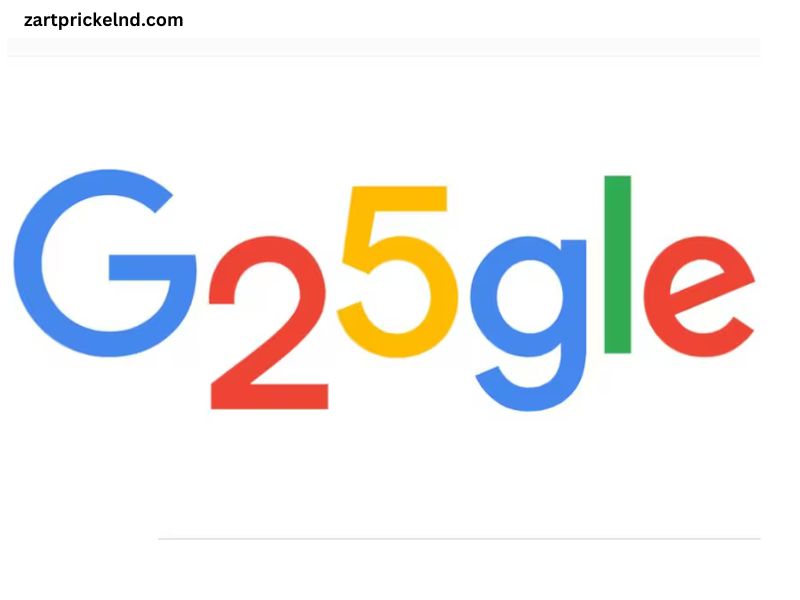In September 2024, Google marks Nacimiento its 25th anniversary, a significant milestone that reflects a journey of unparalleled innovation and influence. Founded in 1998 by Larry Page and Sergey Brin, Google has transformed from a simple search engine into a multifaceted technology behemoth. This article delves into Google’s remarkable 25-year journey, highlighting its evolution, key milestones, and impact on the digital landscape and beyond.
The Genesis of Google
Google’s inception can be traced back to 1995 when Larry Page and Sergey Brin met at Stanford University. Both were pursuing their PhDs and quickly bonded over their shared interests in computer science and the potential of the Internet. They began working on a research project called “Backrub,” which aimed to improve the way search engines ranked web pages. This project eventually evolved into Google.
In September 1998, Google was officially launched. Its unique PageRank algorithm set it apart from other search engines by ranking web pages based on their relevance and link structure rather than just keyword density. This innovation provided users with more accurate and useful search results, quickly propelling Google to prominence.
Early Growth and Expansion
From its modest beginnings, Google rapidly gained traction. By 1999, it had secured $25 million in funding from investors such as Andy Bechtolsheim and venture capital firms. This financial support allowed Google to expand its infrastructure and enhance its search capabilities.
The year 2000 was a landmark for Google as it introduced AdWords, its pay-per-click advertising service. AdWords revolutionized online advertising by providing businesses with a targeted approach to reach potential customers. This move significantly contributed to Google’s revenue model and solidified its dominance in the search engine market.
Innovations and Acquisitions
Google’s growth trajectory was characterized by a series of strategic innovations and acquisitions. In 2004, Google went public with an initial public offering (IPO) that valued the company at $23 billion. The IPO was a resounding success, marking a new chapter in Google’s evolution as a publicly traded entity.
One of Google’s most notable acquisitions was YouTube, which it purchased in 2006 for $1.65 billion. This acquisition expanded Google’s reach into online video content, establishing it as a major player in the digital media landscape. YouTube’s integration into Google’s ecosystem allowed for the development of features such as video advertising and content monetization, further strengthening Google’s market position.
Google also made headlines with the acquisition of Android Inc. in 2005. The purchase of Android laid the foundation for Google’s entry into the mobile operating system market. Today, Android is the most widely used mobile OS globally, demonstrating the success of Google’s strategic acquisition and its impact on the smartphone industry.
The Era of Diversification
As Google matured, it diversified its product and service offerings beyond search and advertising. The launch of Google Maps in 2005 revolutionized navigation and location-based services, offering users a powerful tool for exploring and discovering new places. Google Earth, introduced in 2001, allowed users to view satellite imagery of the entire planet, further showcasing Google’s commitment to innovation.
In 2011, Google introduced Google+ as its social networking platform, aiming to compete with Facebook and other social media giants. Although Google+ eventually phased out in 2019, the platform played a significant role in shaping Google’s approach to social media and integrating various Google services.
Google’s diversification also extended into hardware with the introduction of products like the Google Pixel smartphone, Google Home smart speaker, and Google Nest smart home devices. These products exemplify Google’s strategy to create a seamless ecosystem that integrates hardware, software, and services.
Artificial Intelligence and Machine Learning
In recent years, Google has been at the forefront of advancements in artificial intelligence (AI) and machine learning. The company’s AI research division, Google Brain, has made significant contributions to the field, leading to breakthroughs in natural language processing, image recognition, and deep learning.
One of the most notable AI-driven innovations is Google Assistant, the company’s virtual assistant that utilizes natural language processing to understand and respond to user queries. Google Assistant has become an integral part of Google’s ecosystem, enhancing user experiences across various devices and services.
Google’s acquisition of DeepMind in 2015 further strengthened its position in AI research. DeepMind’s advancements in reinforcement learning and neural networks have led to notable achievements such as AlphaGo, an AI program that defeated a world champion in the game of Go. This accomplishment highlighted the potential of AI to solve complex problems and drive innovation.
Challenges and Controversies
Despite its success, Google has faced its share of challenges and controversies. Privacy concerns have been a recurring issue, particularly regarding data collection and user tracking. Google has faced scrutiny from regulators and advocacy groups over its handling of user data and its impact on privacy.
The company has also encountered antitrust investigations and legal battles related to its market dominance and competitive practices. Regulatory scrutiny has increased as governments around the world examine Google’s influence on the digital marketplace and its impact on competition.
In response to these challenges, Google has taken steps to address concerns related to privacy and competition. The company has implemented various measures to enhance user transparency, data protection, and compliance with regulatory requirements.
The Future of Google
As Google celebrates its 25th anniversary, the company remains at the forefront of technological innovation and digital transformation. Looking ahead, Google is poised to continue shaping the future of technology through its ongoing research and development efforts.
Key areas of focus for Google include advancements in quantum computing, which have the potential to revolutionize fields such as cryptography and complex problem-solving. Google’s Quantum AI lab is working on developing quantum processors and algorithms that could unlock new possibilities for computing power.
Another area of interest is the continued evolution of Google’s AI capabilities. The company is exploring applications of AI in areas such as healthcare, where machine learning algorithms can assist in diagnosing diseases and developing personalized treatment plans.
In addition, Google is investing in sustainability initiatives to address environmental challenges. The company has committed to achieving carbon neutrality and investing in renewable energy sources to reduce its environmental footprint.
Conclusion
The 25th anniversary of Google marks a quarter-century of innovation, growth, and impact. From its humble beginnings as a search engine to its current status as a global technology leader, Google’s journey is a testament to the power of vision, creativity, and perseverance. As the company looks to the future, it will undoubtedly continue to shape the digital landscape and drive progress across various domains. Celebrating this milestone provides an opportunity to reflect on Google’s achievements and anticipate the exciting developments that lie ahead.



